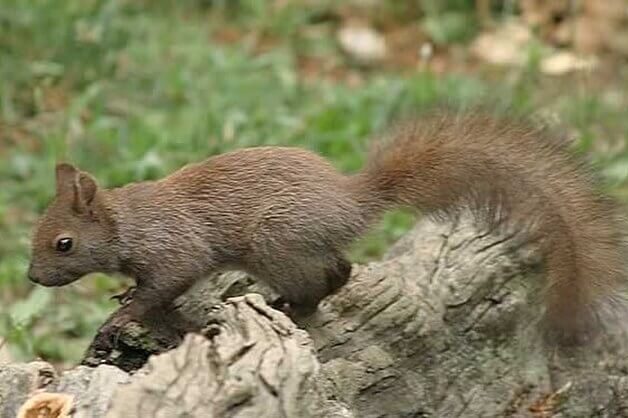
The Ministry of Defence is making significant strides in aiding the survival of red squirrels in southern Scotland, particularly at its Kirkcudbright Training Centre, frequently utilised for infantry training with live firing exercises.
Recent reports from the Defence Infrastructure Organisation (DIO) indicate a doubling of red squirrel sightings, suggesting the success of conservation efforts undertaken in collaboration with other organisations.
Initiated two years ago, these efforts involved partnering with the Dumfries and Galloway Pine Marten Group to install den boxes within the training area, leveraging pine martens to control grey squirrel populations.
Grey squirrels, competitors of reds for resources and carriers of the deadly squirrelpox virus, pose a significant threat to red squirrel populations.
Early signs point to the efficacy of the conservation work in Kirkcudbright, reflecting the commitment of the DIO to environmental stewardship.
Warrant officer Scott Maclean, who has been working on the project, said: “There has been a notable increase of red squirrel activity across the estate at Kirkcudbright, roughly double the number of sightings over the last few months in five or six separate locations.
“There have also been several sightings of pine martens by Kirkcudbright Training Centre staff and members of the public in the Balmae Lake area of the estate.
“The presence of pine martens is clearly having a beneficial impact on the red squirrel population at Kirkcudbright.”
The DIO’s principal ecologist, Oliver Howells, said conservation was an important part of its work.
“Our ecologists, as well as dedicated training safety officers such as Scott, are working hard to deliver military training requirements, while at the same time supporting the recovery of some of the most threatened and iconic species in the UK,” he said.
“Wildlife continues to thrive across our training areas, and there are many examples of how priority species are flourishing alongside military activities.
“The rise in red squirrel numbers at Kirkcudbright is a great example and a real success story.”
This initiative forms part of broader plans to enhance the Balmae Lake region within the training centre, including the removal of non-native plant species and the introduction of Scottish wildflowers.
Spanning approximately 1,900 hectares (4,700 acres), the training area primarily serves infantry training purposes, with public access permitted in non-firing periods.
——————————————————————————
At Natural World Fund, we are passionate about stopping the decline in our wildlife.
The decline in our wildlife is shocking and frightening. Without much more support, many of the animals we know and love will continue in their decline towards extinction.
When you help to restore a patch of degraded land through rewilding to forests, meadows, or wetlands, you have a massive impact on the biodiversity at a local level. You give animals a home and food that they otherwise would not have had, and it has a positive snowball effect on the food chain.
We are convinced that this is much better for the UK than growing lots of fast-growing coniferous trees, solely to remove carbon, that don’t actually help our animals to thrive.
This is why we stand for restoring nature in the UK through responsible rewilding. For us, it is the right thing to do. Let’s do what’s right for nature!
Donate today at https://naturalworldfund.com/ and join in the solution!

